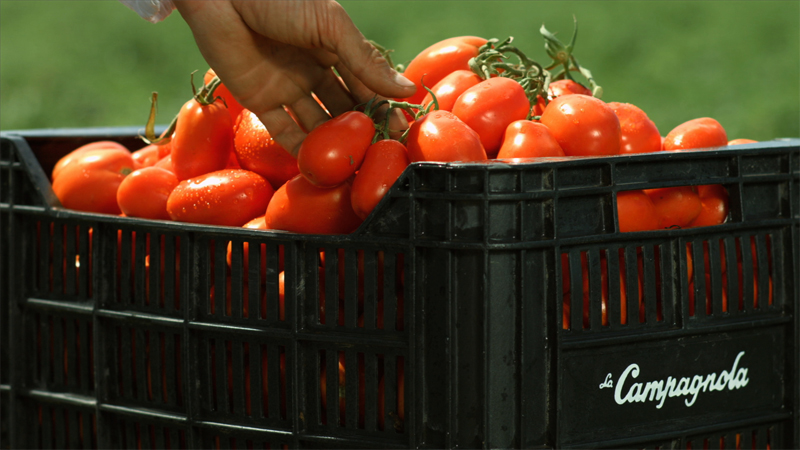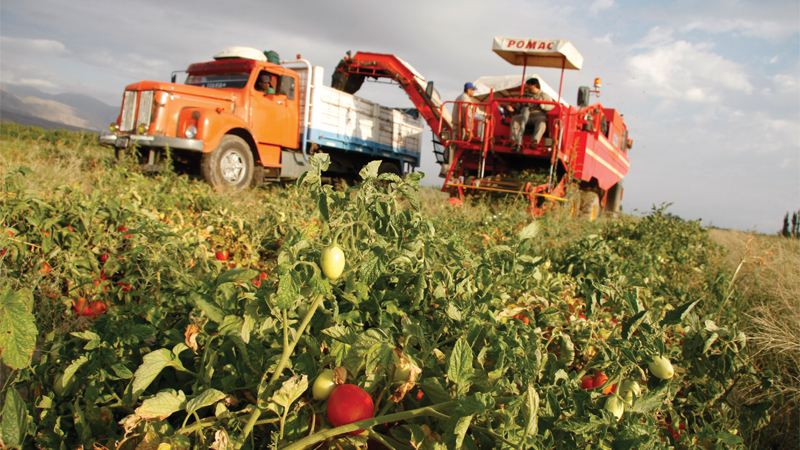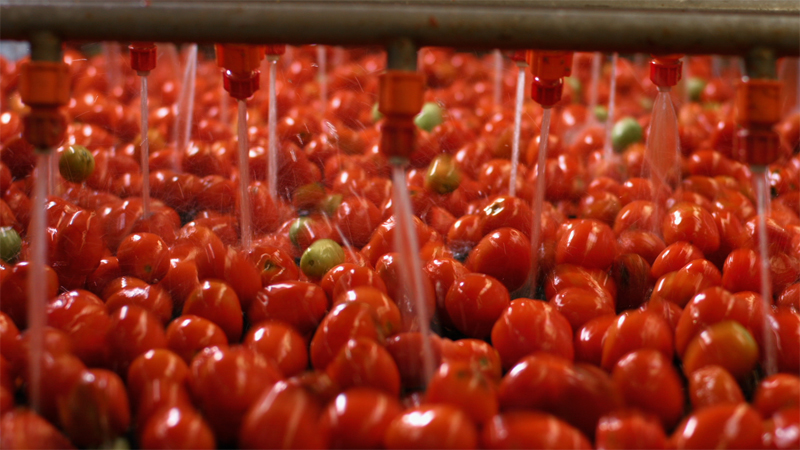What's behind our tomato cans?
From our farms to the points of sale. We show you how we carry out the production of our canned tomatoes, step by step.

At the La Campagnola plant in the province of San Juan, we produce tomato cans in two presentations on a daily basis: diced tomato and whole peeled tomato, both in juice or tomato puree, under the Salsati, La Campagnola and Arcor brands.
Our tomatoes are grown at the bottom of the Cordillera, in producers’ farms in San Juan, one of the richest soils on the planet where the most proactive farmers work. We harvest the tomatoes at their peak of ripeness, then, the tomatoes go through a rigorous selection process and they are finally canned in a matter of hours to preserve their nutritional properties and taste.
How is the manufacturing process of our tomatoes?
1. Beds preparation
It all starts with the preparation of a bed through a mechanical transplant. Subsequently, the sanitary procedures are performed to the crop until harvesting.
2. Harvesting Harvesting is mostly mechanical.
Through a cutting head, the machines raise the plants, shake them to release the tomato that, when passing through color pickers, removes hard pieces of earth, stones and green tomatoes. Then, the tomatoes are transferred to a bulk truck that transports them to the processing plant.

3. Cleaning
The cleaning stage has several processes. Once the truck arrives at the plant, a hydrant is used that produces a flow of water in which the water transports the tomatoes to a sleeve, that, in turn, downloads them from the truck and leaves them in a water channel called "stone blocker". This channel separates heavy bodies, like stones, and removes small particles of earth. Then, a high-pressure water wash is carried out.
"We observe every detail of our production process to guarantee the quality of our products." Pasteurization allows us to maintain the taste and properties of tomatoes without the need to use preservatives or aggregates, "Guillermo Ratto, Marketing Grouper.

4. Initial Selection
Through cameras, tomato defects are detected by color, black spots or scars, and a rejection system selects those apt to go to the can. The latter pass through a second manual selection before entering the peeling stage.
5. Peeling
By means of direct steam, the water that is between the pulp and the skin is heated until it turns into steam and the skin explodes. Then, the tomatoes pass through rollers, called pinchers, which remove the remains of skin that could remain stuck to the tomato.
6. Manual Selection
Once peeled, the tomatoes go through another manual selection in which the collaborators defects that could not be detected through technology. After that, the selected ones are sent to the packaging line.
7. Canning Process
The tomatoes are placed in the can through volumetric canners, where the empty container enters and is filled according to the grammage of the can. The cans are manufactured in our Metal Containers Factory located in the same plant.
8. Pasteurization and Packaging
Cans go through a pasteurization stage, which involves a heating stage (98°) and a cooling stage (40°) to inhibit microbial growth. Finally, containers are placed in an automatic palletizer to be labeled and bulks are prepared and sent to the market.
What are the benefits of consuming tomato?
Tomatoes are rich in vitamin C; they are good for our bones, skin and teeth. In addition, they help to obtain energy and contribute to the functioning of the nervous and immune systems.
Did you know that…?
_ In San Juan, 1,600 hectares of tomato are grown; at our plant, 1 million kilos are processed per day, which is equivalent to 35 full trucks.
_In Latin America, Argentina is one of the main producers.
_The main consumers in the world are England, the United States, Japan and Australia.
Arcor Group develops different sustainable initiatives with its producers that are part of its value chain. To find out more about the Diploma Degree in Sustainable Fruit and Vegetable Management, click here.






